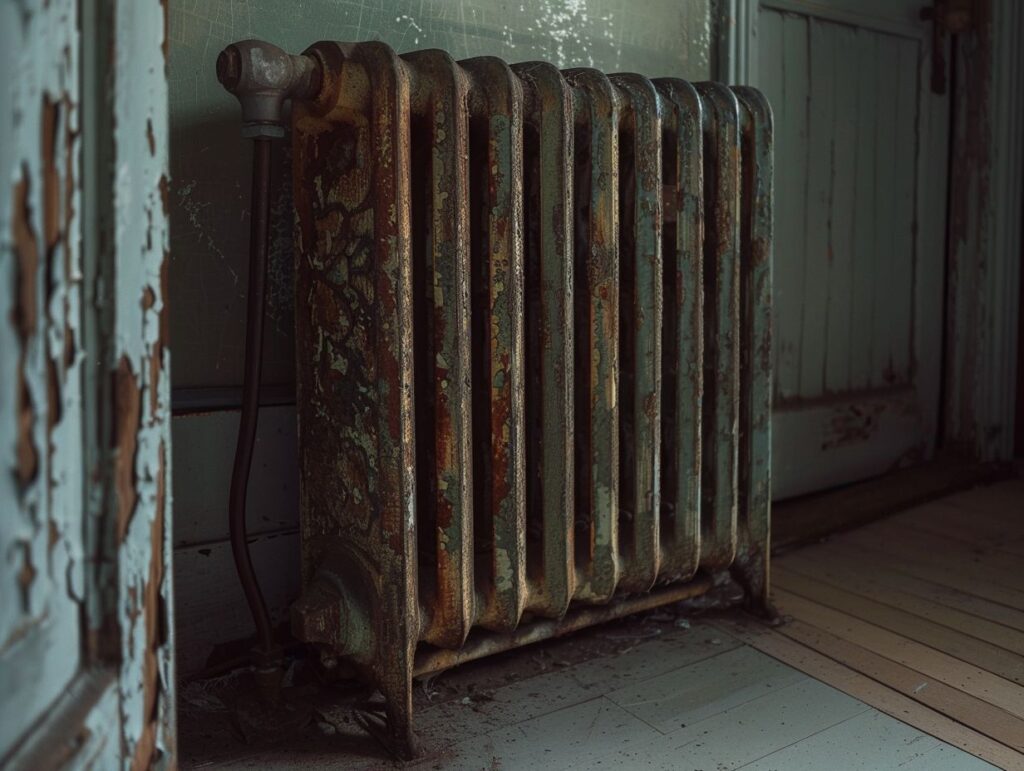Hallway radiators are not only crucial for maintaining warmth in your home but also have the potential to enhance the aesthetic appeal of your living spaces. It is imperative to deal with rust problems that could impact both the efficiency and visual appeal of these radiators.
In the following discussion, we will explore different types of hallway radiators, examine the root causes of rust formation, suggest preventive measures, and outline steps to address existing rust on your radiators. Whether you are seeking maintenance advice or exploring replacement options, rest assured that we have you covered.
Key Takeaways:
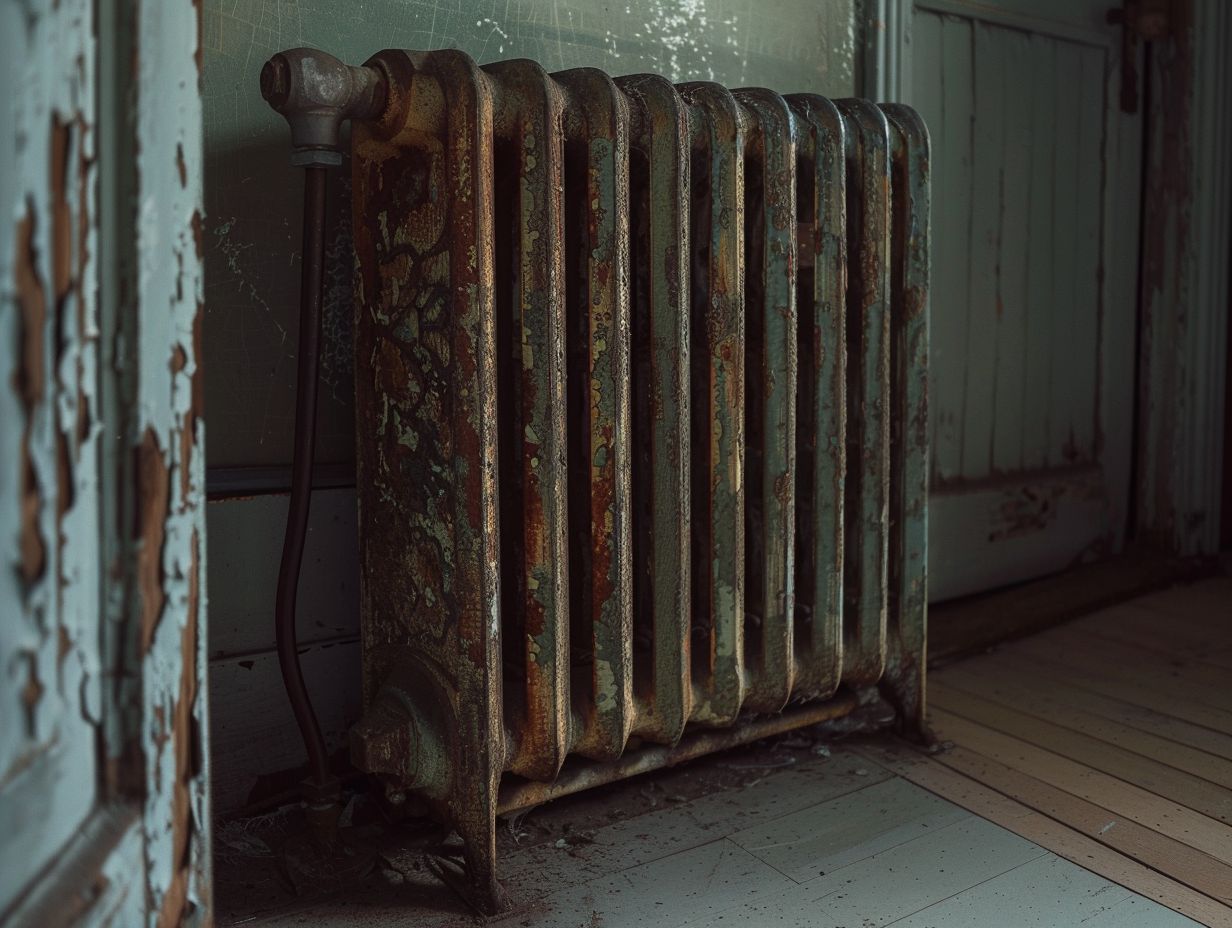
- Radiators in hallways are susceptible to rust due to moisture and corrosion.
- Proper maintenance and regular inspections can prevent rust in hallway radiators.
- If rust has already formed, there are techniques available to remove and repair it, but replacement may be necessary in some cases.
The Causes of Rust in Radiators
Understanding the causes of rust in radiators is essential for preventing corrosion and ensuring the longevity of your heating system. Factors such as moisture content and environmental conditions play a significant role in the development of rust within radiators.
Moisture is a common culprit in the formation of rust in radiators. When moisture is combined with environmental factors like humidity or exposure to chemicals, it creates optimal conditions for corrosion to occur.
In environments such as schools, hospitals, and care homes, where there may be heightened levels of moisture due to various activities and occupants, radiators are more susceptible to rusting. This not only impacts the appearance of the radiators but can also affect their efficiency, resulting in decreased heating performance and potential malfunctions.
Moisture and Corrosion
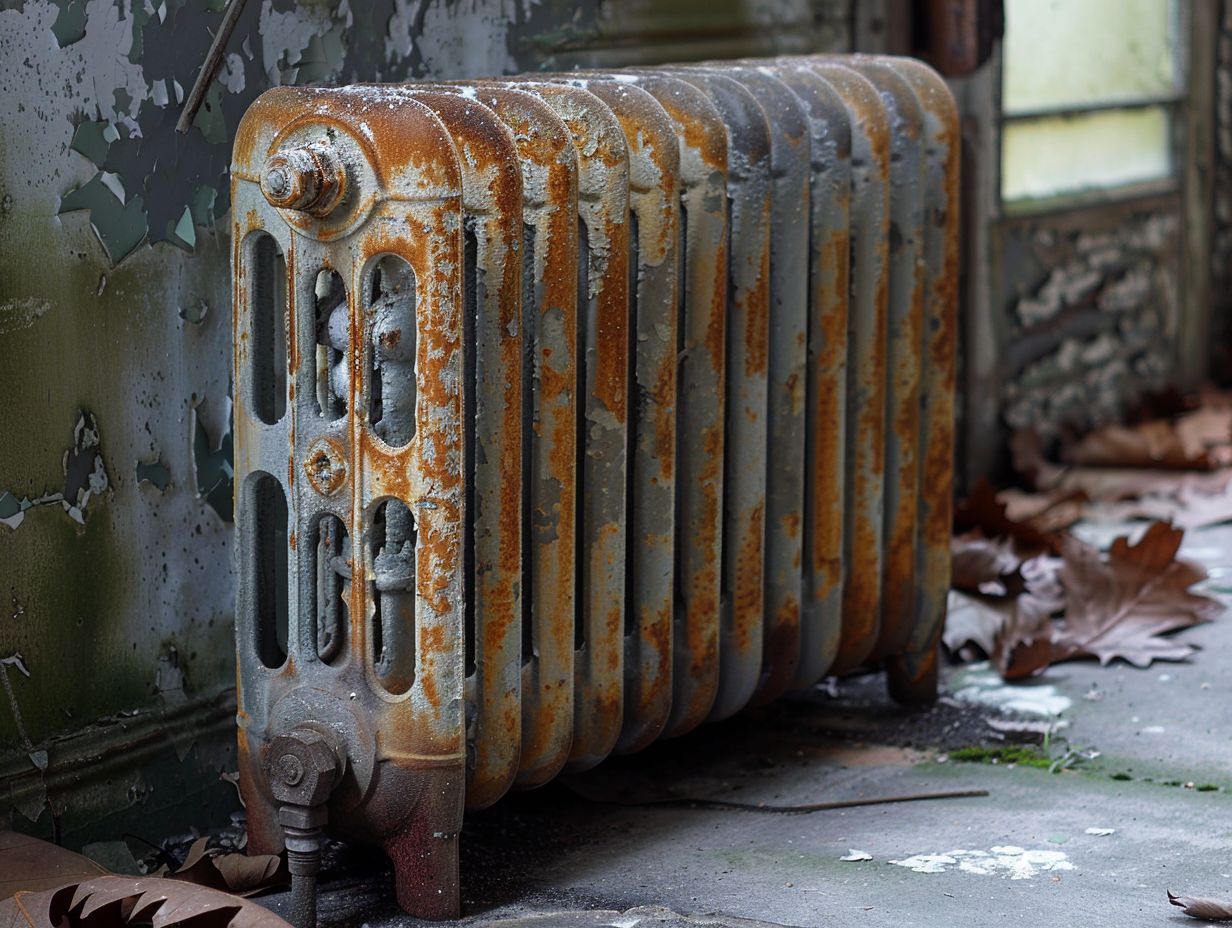
The presence of moisture and oxygen creates an ideal setting for a chemical reaction that initiates corrosion and rust formation in radiators. It is imperative to incorporate effective rust prevention techniques to lessen the detrimental impact of moisture on the surfaces of radiators.
This phenomenon occurs when the oxygen molecules in the atmosphere combine with the water molecules within the radiator, initiating a chemical reaction that leads to the development of rust.
To address this issue, a variety of rust prevention methods can be utilised, such as the application of anti-corrosion coatings or the use of sacrificial anodes to redirect the corrosive elements away from the radiator’s surface.
These protective measures establish a barrier that protects the radiator from moisture penetration and prevents the onset of corrosion, thereby prolonging its lifespan and preserving optimal functionality.
Preventing Rust in Hallway Radiators
To prevent rust in corridor radiators, you need to prioritise regular maintenance and effective cleaning techniques. By adhering to simple and cost-effective practices, you can extend the lifespan of your radiators and ensure they function at their peak efficiency.
Commence by regularly dusting the radiator surfaces with a soft brush or microfibre cloth. This straightforward step helps prevent the build-up of debris and dust, which are common contributors to rust formation. Additionally, consider using a cleaning solution made of equal parts water and vinegar in a spray bottle to effectively remove stubborn stains or dirt.
It is crucial to carry out thorough inspections for any leaks or signs of water damage around the radiator valves and pipes. Dealing with these issues promptly is vital to prevent moisture accumulation, which can accelerate the rusting process.
Maintenance Tips
When maintaining hallway radiators, ensure you follow these regular maintenance tips. Begin by checking for any blockages and removing accumulated dust. Use a vacuum cleaner or duster to clean hard-to-reach areas. These simple practices are essential for enhancing the efficiency and extending the lifespan of your heating system.
To identify blockages in your radiator, start by checking for any irregularities in heat distribution. If you notice certain areas that are significantly cooler than others, there may be a blockage impeding proper circulation. To address such blockages, gently bleed the radiator or use a radiator key to release any trapped air.
Removing dust buildup is also crucial for optimal performance. Utilise a soft brush attachment on your vacuum cleaner or a microfibre duster to carefully eliminate dust from the fins and crevices of the radiator. By consistently performing these maintenance tasks, you can ensure that your radiator operates smoothly and efficiently.
Dealing with Existing Rust
When you encounter existing rust in your hallway radiators, it is essential to implement effective rust prevention measures and employ suitable removal and repair techniques. Taking prompt action to address rust issues can prevent further corrosion and preserve the functionality of your radiators.
One recommended preventive measure is to conduct regular inspections of your radiators for any indications of corrosion, such as bubbling or flaking paint. Applying a rust-resistant primer or paint can establish a protective barrier that guards against the elements responsible for rust formation, namely moisture and oxygen.
Another strategy to consider is the installation of a dehumidifier or the use of moisture-absorbing products near your radiators to reduce humidity levels and lower the risk of rust. In terms of removal, utilising a rust dissolver or a solution of white vinegar and water can effectively disintegrate rust particles, facilitating easier cleaning.
In instances of more severe rust damage, it may be advisable to seek assistance from a professional radiator repair service to comprehensively address the issue and ensure optimal performance of your radiators.
Removal and Repair Techniques
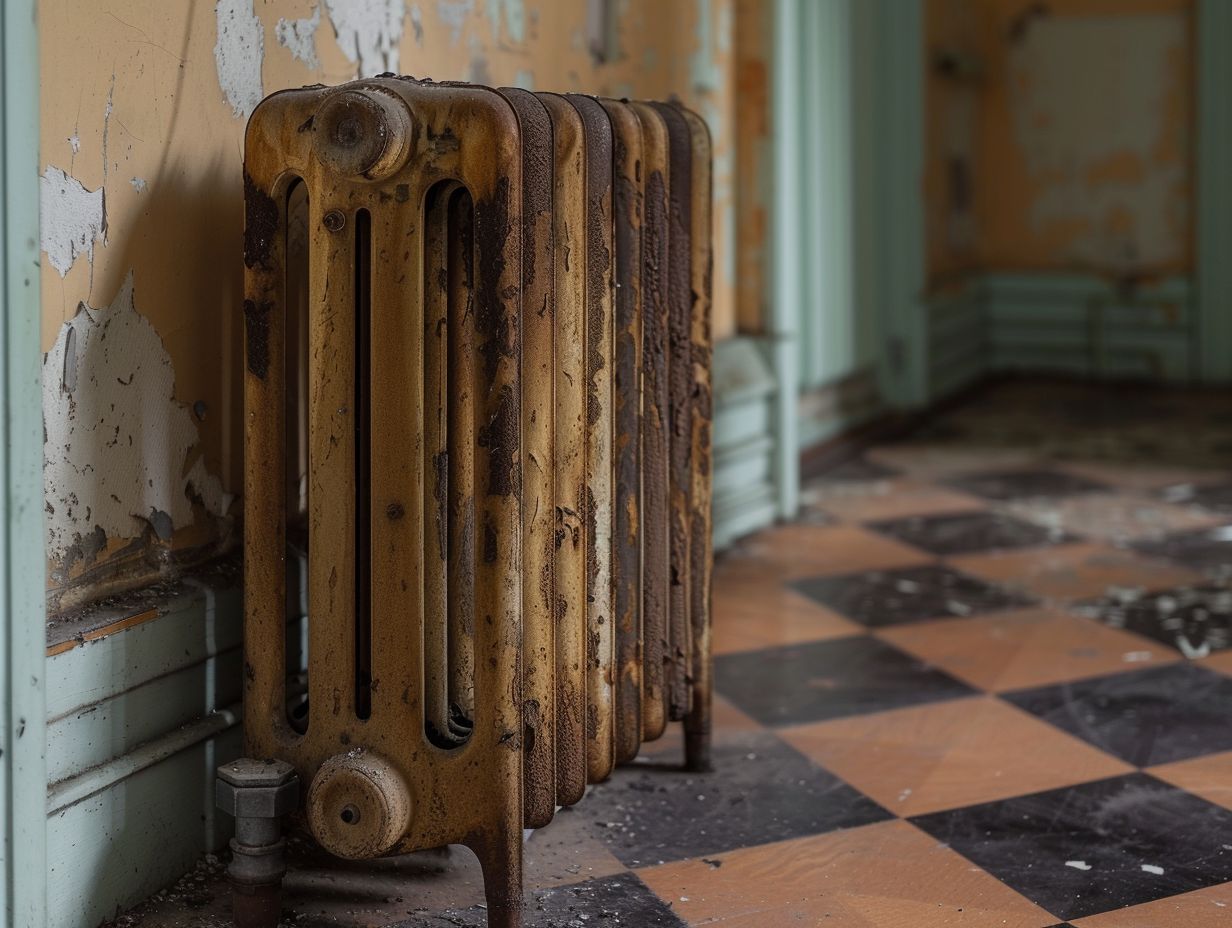
To effectively remove and repair rust in corridor radiators, it is important to address issues such as gunk and limescale build-up through consistent maintenance and cleaning practices. By incorporating these techniques, you will be able to restore the radiators to their optimal condition.
To address gunk and limescale build-up in radiators, you should begin by draining the system and flushing it with a specialised cleaning solution. Utilise a radiator key to remove the top panel and expose the internal components. Scrub the inner surfaces with a stiff brush to remove any stubborn debris.
For limescale removal, consider using a descaling agent or a mixture of vinegar and water to break down the mineral deposits. After rinsing thoroughly, refill the radiator with fresh water and bleed the system to remove any air pockets. Consistent cleaning and maintenance practices will help prevent future rust-related issues.
Replacing Rusty Radiators
Knowing when to consider replacing your rusty radiators is crucial for maintaining the efficiency and aesthetics of your heating system. Whilst replacing them may be a suitable course of action in certain scenarios, it is essential to evaluate the affordability and necessity of new radiators to make well-informed decisions.
Factors such as the degree of rust damage, the age of your current radiators, and the overall condition of your heating system should all be taken into consideration when contemplating a replacement.
It is important to assess whether the cost of repairing the rust issues is a sustainable solution in the long term. Signs of decreased heating efficiency or leaks should prompt you to consider installing new radiators.
When exploring replacement options, budgetary constraints are a significant factor in selecting the most practical and cost-effective solution that aligns with your heating requirements.
When to Consider Replacement?
When considering the replacement of rusty radiators, you should take into account various factors, such as environmental conditions and specific requirements of settings like schools, nurseries, mental health facilities, care homes, and hospitals.
It is essential to assess the suitability of replacement options based on the unique needs of these environments to ensure optimal heating solutions.
In schools and nurseries, safety and energy efficiency should be the primary concerns when choosing new radiators. Mental health facilities and care homes may require considerations for regulating temperatures to create a comfortable and soothing environment for patients.
Hospitals, on the other hand, demand quick heating response times and the ability to maintain sterile conditions, which are crucial factors influencing radiator replacement decisions in these sensitive settings.
Final Thoughts and Recommendations
Implementing regular maintenance routines, following effective cleaning tips, and considering the affordability of maintenance practices are key to preserving the condition of your hallway radiators and ensuring optimal heating system performance.
By incorporating these strategies, you can prolong the lifespan of your radiators and minimise the risk of rust-related issues.
For you, regular maintenance involves simple tasks like bleeding the radiators to remove trapped air, checking for leaks, and ensuring proper insulation. Cleaning your radiators regularly with a soft brush or vacuum can prevent dust build-up and maintain heat efficiency.
To keep costs low, consider DIY cleaning solutions using household items like vinegar and water. Installing a radiator cover can protect against damage and reduce the need for frequent cleaning. These budget-friendly practices can help you maintain your hallway radiators effectively without breaking the bank.
Frequently Asked Questions
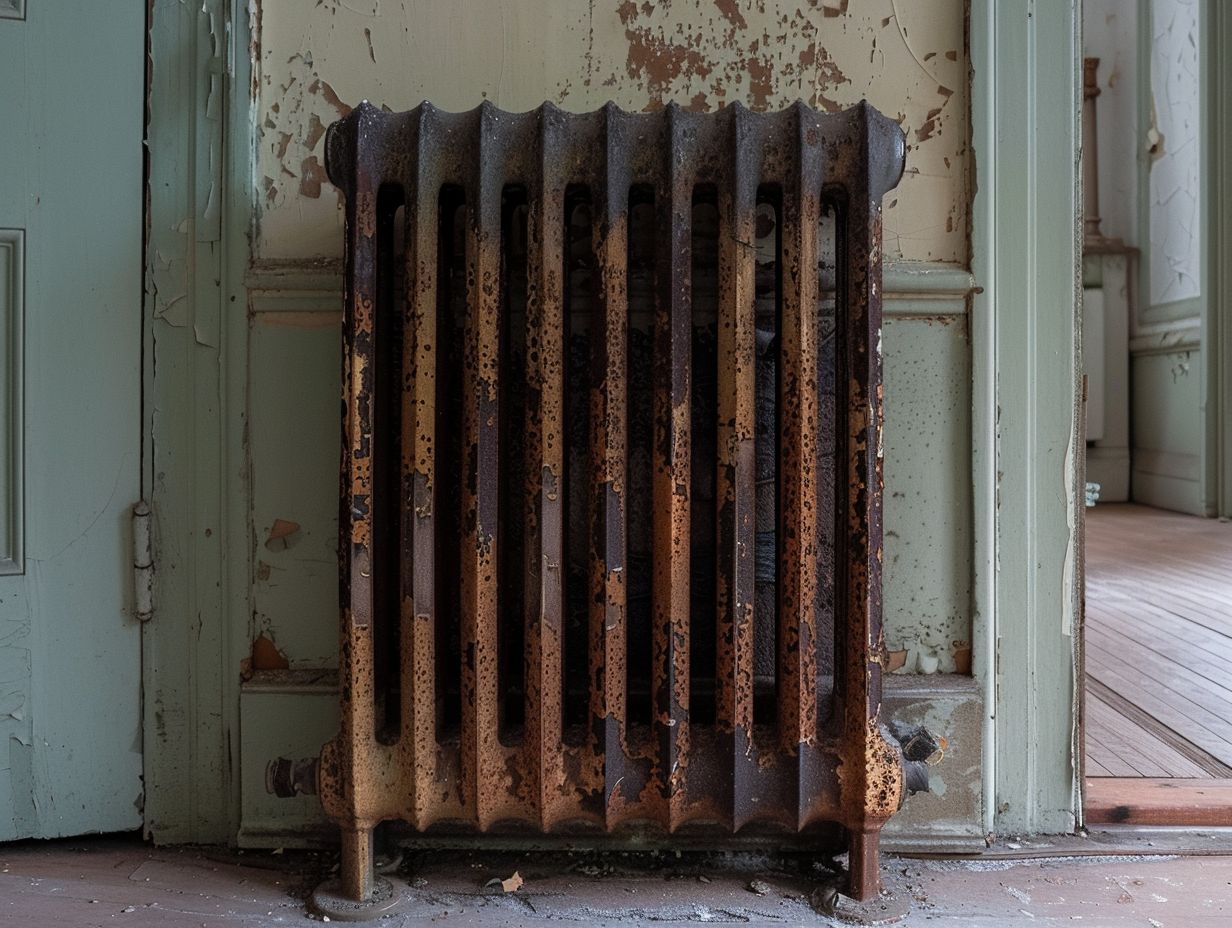
Do hallway radiators rust?
Yes, hallway radiators can rust over time due to exposure to moisture and air.
What causes rust on hallway radiators?
Rust on hallway radiators is primarily caused by the combination of moisture and oxygen. This can be from humidity in the air or from small leaks or drips.
Can rust on hallway radiators be prevented?
Yes, rust on hallway radiators can be prevented by regularly cleaning and maintaining them. This includes wiping them down with a dry cloth and fixing any leaks or drips that may cause moisture buildup.
How can I remove rust from my hallway radiator?
To remove rust from a hallway radiator, you can use a mixture of baking soda and vinegar or a commercial rust remover. Apply the solution to the affected area and scrub with a brush, then rinse and dry thoroughly.
Is rust on my hallway radiator dangerous?
In most cases, rust on a hallway radiator is not dangerous. However, if the rust is severe and causes damage to the radiator, it may lead to malfunctions or potential safety hazards. It is important to regularly check and maintain your radiators to prevent this.
What can I do to prevent rust from forming on my hallway radiators?
To prevent rust on hallway radiators, make sure to regularly clean and maintain them. You can also use a rust-inhibiting paint or spray to protect the metal surface. Additionally, keeping the humidity levels in your home under control can help prevent moisture buildup and rust formation.

